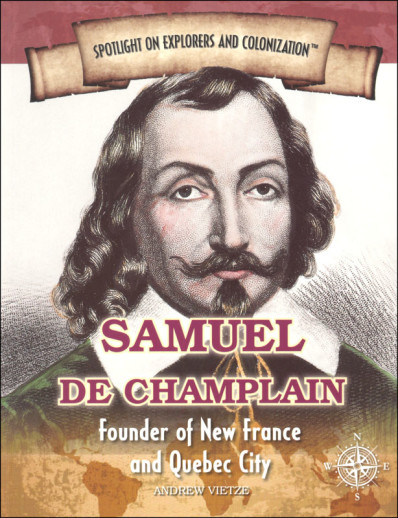We use cookies to make your experience better. To comply with the new e-Privacy directive, we need to ask for your consent to set the cookies. Learn more.
Samuel de Champlain (Spotlight on Explorers and Colonization)
Meet the founder of New France and Quebec City. Samuel de Champlain was a famous French explorer who helped France expand its empire into North America. Softcover, 48 pages.
The human spirit of discovery has always driven explorers to forge unchartered routes to distant territories. Before the discovery of the New World, explorers from Europe, Africa, and Asia brought the culture, politics, and customs of their homes to far-away lands. These actions encouraged trade, the spread of ideas and technology, and cultural interaction and exchange. This spirit of exploration continued with the European discovery and colonization of the Americas. The biographies in this series detail the lives and deeds of the most noteworthy explorers to cross the high seas or tread new routes across continents. Each title investigates their motivations, the often negative physical and cultural effects of exploration on native peoples, and, in turn, the influence of foreign cultures on society back home. ~Amber
| Product Format: | Paperback |
|---|---|
| Brand: | Rosen Classroom |
| Grades: | 3-6 |
| ISBN: | 9781508172277 |
| Length in Inches: | 9.25 |
| Width in Inches: | 7.125 |
| Height in Inches: | 0.125 |
| Weight in Pounds: | 0.3 |
Be the first to review this item
- Start typing and we'll see if it was already asked and answered.
- If there aren't already some matches, submit a new question.
- You'll get fast answers from customers who really own the item(s) and from our product experts. (About half the time you'll get an answer in under 2 hours!)
- Which items will best meet your needs
- What customers who own an item think of it
- How to use, fix, or take care of an item
- Product information
- General advice related to the types of products we sell
- Our store policies
For questions about an order you have placed, please contact customer support directly.
















